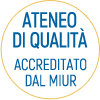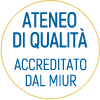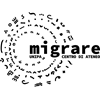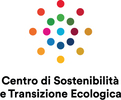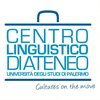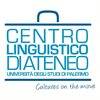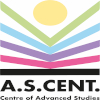Admissions
Ascolta
Admission will be based on the evaluation of the CV and the research proposal of the candidate. Eligible candidates hold excellent score levels in previous master studies (the Italian Laurea Magistrale or equivalent foreign degree which will be assessed by the selection committee), post-degree experiences with specific emphasis on scientific research in economics and/or statistics (for example, internships in economic or financial institutions, statistical data analysis, etc.), prizes, awards and other credentials.
A PhD is about learning new skills, how to do research, and becoming an independent researcher. We recognise that students will come to us from different backgrounds in order to learn these new skills and we welcome interest from domestic and international students.
It is best to enquire well ahead (at least two months) before the open date of formal application (usually June). Note that, the EOI is not the formal application. Candidates must send a formal application after the official call opens.
Background and research project
Admission will be based on the evaluation of the CV and the research proposal of the candidate. Eligible candidates hold excellent score levels in previous master studies (the Italian Laurea Magistrale or equivalent foreign degree which will be assessed by the selection committee), post-degree experiences with specific emphasis on scientific research in economics and/or statistics (for example, internships in economic or financial institutions, statistical data analysis, etc.), prizes, awards and other credentials.
Applications by students with a background other than economics or statistics, such as political sciences, social sciences, mathematics, engineering, physics etc, are strongly encouraged.
The research project will play a relevant role in the final admission decision. The project can be written in Italian or English. The research project has to contain the main objectives of the research to be carried out. The objectives must be clearly specified and address one or more open scientific questions. The objective must be relevant and it has to refer to the state-of-the-art of the literature in the chosen field and published in leading academic journal. Finally, the research project has to be coherent with the main research interest of the department, as synthetically described in the research areas.
The research potential of the candidate will be assessed through an interview (online interviews are also possible). Non-English candidates have to give their interview in English. Italian candidates have to show their English fluency. Although language certifications are not required, they will be considered by the admission committee.
Expression of interest
A PhD is about learning new skills, how to do research, and becoming an independent researcher. We recognise that students will come to us from different backgrounds in order to learn these new skills and we welcome interest from domestic and international students.
Before applying for a PhD with our department, you should submit an Expression of Interest (EOI).
Basically, you should review our research areas, and individual researchers and their expertise or ongoing research. This will provide you with an understanding of the research undertaken at our department, and give you an indication of the possible areas of research study. This will also assist you in writing a research proposal for your EOI submission.
Interested candidates are invited to submit an EOI to andrea.consiglio@unipa.it, enclosing:
-
a Curriculum Vitae (mentioning if a Master degree is expected before October);
-
a one-page research statement, falling within one of the research fields listed below;
-
any other documents (such as research papers, Master dissertation, GRE, TOEFL) that may help to assess the candidate’s qualifications.
It is best to enquire well ahead (at least two months) before the open date of formal application (usually June). Note that, the EOI is not the formal application. Candidates must send a formal application after the official call opens.
The formal application has to be sent in due time with all documents indicated in the official call (including the CV) and represents the only way for being considered by the admission committee.
For more information on the formal admission procedure please click here.
Scholarships
Usually, up to six students are admitted to the program each year. One position is reserved for non-Italian students (students who graduated abroad). The salary is approximately 12.300 euro per year (net of taxes) . The duration of each scholarship is 3 years, subject to performance. The monthly allowance can be increased up to 50% for students visiting a research institution or University abroad. Starting in the second year, there are also allowances for short-period mobility.
Research Areas
An illustrative, but not exhaustive, list of research fields include:
-
Mathematical and Quantitative Methods: Optimization techniques, Programming models, Computational techniques, Simulation modeling, Quantitative policy modeling, Big data analytics, Network analysis, Large scale optimization, Quantitative finance, Option pricing, Insurance models, Contingent debt instruments, Debt sustainability analysis.
-
Financial Economics: Asset Pricing, Banking and Financial Services, Behavioural Finance, Corporate Finance, Corporate Governance, Credit management, Financial Accounting, Financial Econometrics, Risk Assessment, Finance and Risk Management.
-
Economics: Macroeconomic Policy, Monetary Policy, Fiscal policy, Forecasting and business cycles analysis, Institutional and Development Economics, International Economics, Auction Theory, Behavioral Economics, Decision Theory, Game Theory, Industrial Organization.
-
Applied economics: Health Economics, Industrial Economics, Pensions and Insurance, Public Economics and Regulation, Regional Economics.
-
Statistics: Biostatistics, Medical Statistics, Demography, Data Science, Computational Statistics, Statistical Methods, Quantitative Methods in Regional Science, Spatial Economic Data Analysis, Productivity Analysis, Business Analytics, Policy Evaluation Analysis, Tourism Data Analysis, Empirical Economic Analysis.




